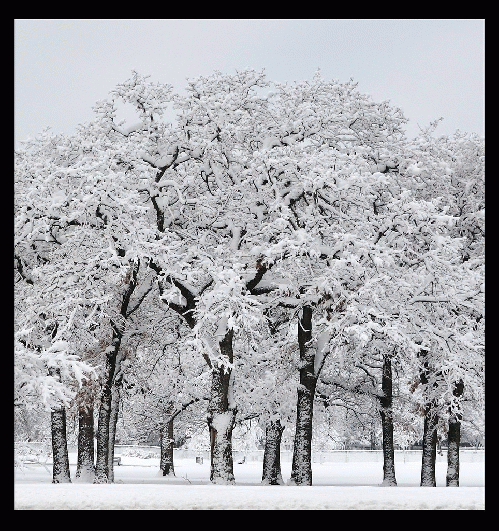See original here
By Kenny Stancil, staff writer
"This extreme polar vortex event epitomizes everything climate change is: unprecedented, unrelenting, affecting a population unaccustomed and unprepared. Yes, we have always had winter -- but not here, and not like this."
While the climate emergency is typically associated with heat waves, wildfires, and other signs of a hotter planet, some scientists are arguing -- the bitterly cold weather currently contributing to suffering and death in Texas and other states accustomed to mild winters is connected to the rapid warming of the Arctic.
"Every cold snap," as the New York Times noted Monday, "can be counted on to elicit quips and stunts from those who deny the science of climate change."
Nevertheless, even though the connection between global warming and "weather patterns that send freezing air from the polar vortex plunging all the way to the Gulf Coast" can seem counterintuitive, the newspaper continued, devastating cold-weather events like Winter Storm Uri are related to a climate crisis driven by accelerated greenhouse gas emissions and defined by rising temperatures.
That's why the climate scientist Katherine Hayhoe told the Times she prefers the phrase "global weirding."
Journalist Emily Atkin explained Tuesday in her Heated newsletter that the jet stream bringing "dangerous Arctic weather to millions of Americans" is, like other forms of extreme weather, related to the climate crisis. Atkin cited Kevin Trenberth, a climate scientist at the National Center for Atmospheric Research, who told her several years ago that "all weather events are affected by climate change because the environment in which they occur is warmer and moister than it used to be."
According to the Times, "The air that usually sits over the Arctic is now sweeping down South because of changes to the jet stream, the high-level air current that circles the Northern Hemisphere and usually holds back the frigid polar vortex."
"There is research suggesting that Arctic warming is weakening the jet stream, allowing the cold air to escape to the south, especially when a blast of additional warming strikes the stratosphere and deforms the vortex," the Times reported. "The result can be episodes of plunging temperatures, even in places that rarely get nipped by frost."
While Amy Butler, a research scientist at the National Oceanic and Atmospheric Administration's Chemical Sciences Laboratory, disputes the existence of "any long-term trend in polar vortex disruptions" because, as she told the Times, they "occur naturally even in the absence of climate change," other experts argue that there is, if not a causal link, then a correlation between climate change, a weakened jet stream, and an increase in southward excursions of cold air.
Judah Cohen, the director of seasonal forecasting at Atmospheric and Environmental Research, told the Times that "severe winter weather is much more frequent when the Arctic is warmest."
"The current conditions in Texas are historical, certainly generational," Cohen told The Guardian Wednesday. "But this can't be hand-waved away as if it's entirely natural. This is happening not in spite of climate change, it's in part due to climate change."
According to Atkin, Cohen is echoing the findings of Jennifer Francis, a research scientist at Woodwell Climate Research Center, who reiterated Tuesday that "this kind of pattern is going to be more likely."
(Note: You can view every article as one long page if you sign up as an Advocate Member, or higher).





